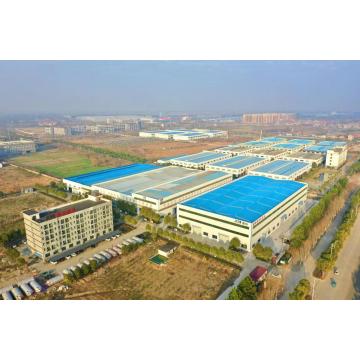
How much salt is greater than the biochemical treatment of high-salt wastewater and high-salt wastewater, let's first understand what is high-salt wastewater and the impact of high-salt wastewater on the biochemical system!
What is hypersaline wastewater?
High-salt wastewater refers to wastewater with a total salt content of at least 1% (equivalent to 10,000mg/L).
It mainly comes from chemical plants and the collection and processing of oil and natural gas.
This wastewater contains a variety of substances (including salt, oil, organic heavy metals and radioactive substances).
Salt wastewater is produced in a wide range of ways, and the amount of water is increasing year by year.
The environmental impact of removing organic pollutants in saline wastewater is crucial.
Biological treatment is used, and high-concentration salts have an inhibitory effect on microorganisms. Physicochemical treatment requires large investment and high operating costs, and it is difficult to achieve the expected purification effect.
The use of biological methods to treat such wastewater is still the focus of research at home and abroad.
The types and chemical properties of organic matter in high-salt organic wastewater vary greatly depending on the production process, but most of the salts contained are Cl-, SO42-, Na+, Ca2+ and other salts.
Although these ions are essential nutrients for the growth of microorganisms, they play an important role in promoting enzyme reactions, maintaining membrane balance and regulating osmotic pressure during the growth of microorganisms.
However, if the concentration of these ions is too high, it will inhibit and poison the microorganisms. The main manifestations are: high salt concentration, high osmotic pressure, dehydration of microbial cells causing cell protoplasm separation; salting-out effect reduces the activity of dehydrogenase; Bacteria have toxic effects; high salt concentration increases the density of wastewater, and the activated sludge is easy to float and lose, which seriously affects the purification effect of the biological treatment system.
Effects of salinity on biochemical systems
Causes dehydration and death of microorganisms In the case of high salt concentration, the change of osmotic pressure is the main cause.
The inside of bacteria is a semi-enclosed environment, and it must exchange beneficial substances and energy with the external environment to maintain its life activity, but it must also prevent most of the external substances from entering to avoid its internal biochemical Response interference and obstruction.
The increase of salt concentration causes the concentration of the internal solution of the bacteria to be lower than that of the outside world, and because of the characteristic of water moving from low concentration to high concentration, it causes a large amount of water loss in the bacteria, which causes the internal biochemical reaction environment to change, and finally destroys the biochemical reaction process until it is interrupted , the bacteria die.
Interfering with the absorption process of microbial substances and blocking death The cell membrane has the characteristic of selective permeation to filter substances that are harmful to bacterial life activities and absorb substances that are beneficial to their life activities.
This absorption process is directly affected by the concentration of the solution in the external environment, the purity of the substance, etc., and the addition of salt will interfere or block the absorption environment of bacteria, which will eventually cause the inhibition of bacterial life activity or even death.
This situation varies greatly due to the individual conditions of the bacteria, the species, the type of salt and the concentration of the salt.
Poisoning and death of microorganisms. Some salts will enter the inside of bacteria along with the life activities of bacteria, destroying the internal biochemical reaction process, and some will interact with the cell membrane of bacteria, causing their properties to change and no longer play a protective role or can no longer absorb. Certain substances that are beneficial to bacteria can inhibit the life activity of bacteria or cause the death of bacteria.
Among them, heavy metal salts are the representative, and some sterilization methods use this principle.
Studies have shown that the impact of high salinity on biochemical treatment is mainly reflected in the following aspects:
1. With the increase of salinity, the growth of activated sludge is affected. The changes of its growth curve are as follows: the adaptation period becomes longer; the growth rate in the logarithmic growth period becomes slower; the deceleration growth period lasts longer.
2. Salinity strengthens the respiration of microorganisms and the lysis of cells.
3. Salinity reduces the biodegradability and degradability of organic matter. Decrease the removal rate and degradation rate of organic matter.




![]() September 05, 2023
September 05, 2023 How much salt is greater than the biochemical treatment of high-salt wastewater and high-salt wastewater, let's first understand what is high-salt wastewater and the impact of high-salt wastewater on the biochemical system!
How much salt is greater than the biochemical treatment of high-salt wastewater and high-salt wastewater, let's first understand what is high-salt wastewater and the impact of high-salt wastewater on the biochemical system!